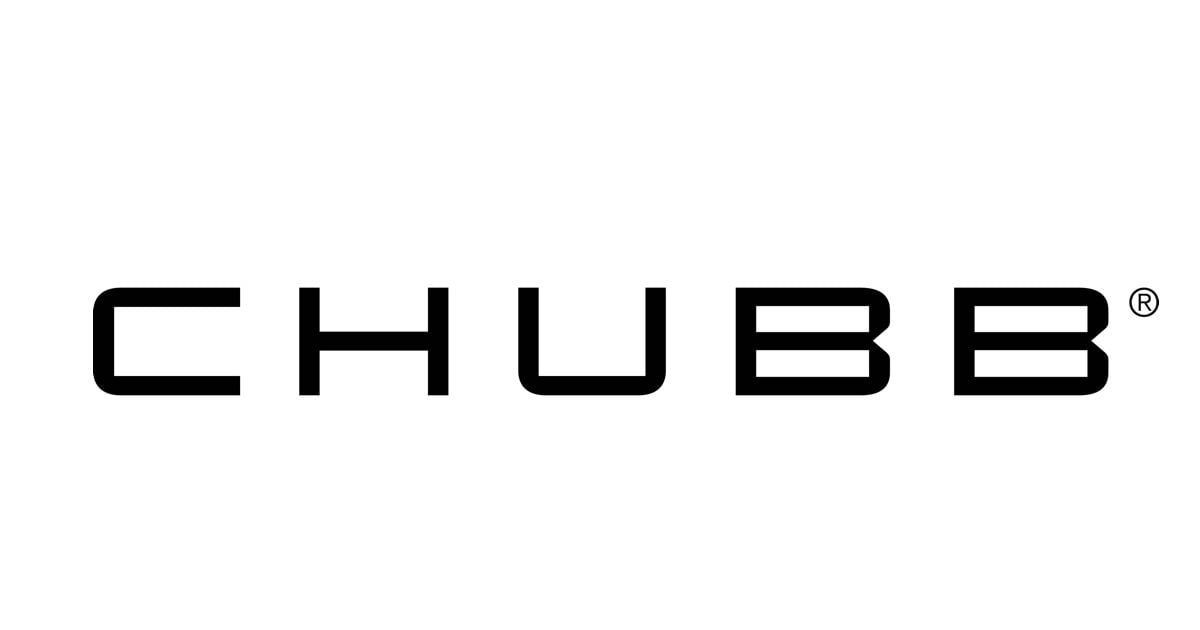Owning a condo in Florida may sound dreamy, but it’s not all sand and sunshine. The cost of individual condo insurance in Florida is higher than in any other state, according to NerdWallet’s rate analysis.
Here’s what you need to know about condo insurance in Florida, including companies to consider and how to get the coverage you need.
Why is Florida condo insurance so expensive?
Condo insurance in Florida has gotten less affordable for a variety of reasons:.
Fewer choices. Severe weather and expensive lawsuits have driven some insurers out of the state or even into bankruptcy.
Inflation. Thanks to rising prices across the country in recent years, it now costs more to repair or rebuild after insurance claims. Insurers are passing the costs to policyholders.
Greater scrutiny. The 2021 collapse of a condo tower in Surfside, Florida, has made companies more cautious about insuring condo buildings in the state. Many condo associations have seen prices for master insurance policies spike, leading to higher monthly fees for unit owners.
Get home insurance quotes in minutes
Answer a few questions to see custom quotes and find the right policy for you.The best Florida condo insurance companies
If you’re looking for quality coverage from a well-rated insurer, consider one of these carriers.
More about the best Florida condo insurance companies
See more details about each company to help you decide which one is best for you.

Amica
- High customer satisfaction ratings and low consumer complaints.
- Platinum Choice package offers extra coverage.
- Dividend policies can return a portion of your premiums.
- You can start a quote online but may have to finish the buying process by phone.
Amica receives far fewer consumer complaints than expected for a company of its size, according to the National Association of Insurance Commissioners. If you buy both condo and auto insurance with Amica, you may be eligible for a bundling discount. The company also offers savings if you don’t file a claim in a three-year period.

Auto Club Group
- Many coverage options and discounts available.
- AAA membership includes roadside assistance and other benefits.
- Fewer consumer complaints than expected for a company of its size.
- A membership fee may be required.
- May have to switch insurers if you move states.
- Restricts coverage for certain dog breeds.
Auto Club Group sells insurance on behalf of AAA in Florida. Coverage options for condo owners may include equipment breakdown insurance. This optional add-on can pay to repair or replace major home systems or appliances that break down. In Florida, AAA condo insurance may be available only as a package with auto insurance.

Chubb
- Far fewer consumer complaints than expected for a company of its size.
- Standard coverage includes features that many companies offer only as extras.
- Perks to help you protect your home.
- Most consumers can't get a quote online and will instead need to contact a local agent.
Chubb caters to owners of high-value homes. It draws far fewer consumer complaints than expected for a company of its size, according to the NAIC. The company advertises quick resolution of claims, issuing some payments within 48 hours. It also includes more than the minimum legal amount of loss assessment coverage, which can help pay for expenses shared among all owners in your building.

Cincinnati Insurance
- Various coverage options.
- Far fewer complaints than expected for a company of its size.
- Coverage available for higher-value homes.
- No online quotes.
- Very little information on website.
Cincinnati Insurance stands out for its low rate of complaints to state regulators for a company of its size, according to the NAIC. The company offers its policyholders discounts on water shutoff devices, which can help prevent damage from leaks. Cincinnati Insurance policies are available through independent agents.

Nationwide
- Offers free smart device to prevent electrical fires in many states.
- Many discounts available.
- Website offers lots of useful features and information.
- Doesn't insure mobile or manufactured homes.
Nationwide offers many ways to customize your condo policy. For example, you can add identity theft insurance to help with expenses if your identity is stolen. You can also buy extra coverage for jewelry or other valuables. Another useful option is replacement cost coverage for your personal belongings. This coverage ensures that you’ll receive enough of a claim payout after a disaster to replace destroyed items with brand-new ones.
State Farm
- User-friendly website.
- Agents offer personalized service.
- Policies generally include extra coverage for your home’s structure.
- Below average for claim satisfaction in a recent J.D. Power study.
State Farm is the largest home insurer in the U.S. It offers its condo policyholders a free smart device called Ting, which monitors your home’s electrical network to help prevent fires. You could be eligible for a discount on your State Farm premiums if you have automatic sprinklers or a burglar alarm system in your condo.

USAA
- Policies include standard coverage that often costs extra elsewhere.
- Fewer customer complaints to state regulators than expected for a company of its size.
- Perks for military homeowners.
- Available only to active military members, veterans, some federal employees and their families.
USAA sells insurance to active military, veterans and their families. Its condo policies come with replacement cost coverage for your belongings, plus deductible-free coverage for military uniforms and equipment. After five years without a claim, you may be eligible for a 15% discount.
Florida’s insurer of last resort
People in Florida who have trouble finding a company to insure their condo may end up with Citizens Property Insurance Corporation. The Florida legislature created this not-for-profit company as a last-resort insurer for those who couldn’t find coverage anywhere else.
You may be eligible for a Citizens condo insurance policy if:
You can’t find another company to insure your unit.
You have other options, but they cost more than 20% more than a policy from Citizens.
How much is condo insurance in Florida?
The average cost of condo insurance in Florida is $995 per year, according to NerdWallet’s rate analysis. That’s more than twice the U.S. average of $490 per year. But there’s a lot of variation depending on where in the state you live.
For example, condo insurance costs an average of $2,280 per year in Miami, while owners in Orlando pay $985 per year, according to our analysis. Below are condo insurance rates for some of Florida’s biggest cities.
City | Average annual rate | Average monthly rate |
|---|---|---|
Boca Raton | $2,105 | $176 |
Bradenton | $1,040 | $87 |
Cape Coral | $1,125 | $94 |
Fort Lauderdale | $1,990 | $166 |
Fort Myers | $1,060 | $89 |
Gainesville | $700 | $58 |
Hialeah | $2,050 | $171 |
Hollywood | $2,005 | $167 |
Homestead | $2,510 | $209 |
Jacksonville | $770 | $64 |
Kissimmee | $855 | $71 |
Lake Worth | $2,000 | $167 |
Lakeland | $945 | $79 |
Miami | $2,280 | $190 |
Naples | $1,500 | $125 |
Ocala | $700 | $59 |
Orlando | $985 | $82 |
Pensacola | $1,110 | $93 |
Pompano Beach | $2,300 | $192 |
Port St. Lucie | $1,315 | $109 |
Sarasota | $1,050 | $88 |
St. Petersburg | $1,180 | $98 |
Tallahassee | $695 | $58 |
Tampa | $995 | $83 |
West Palm Beach | $2,105 | $175 |
» MORE: The average condo insurance cost
Florida condo insurance rates by coverage level
The more coverage you need, the more you’ll pay. Below is a sample of rates for various levels of personal property coverage (the part of your policy that pays for your belongings).
Personal property coverage limit | Average annual cost | Average monthly cost |
|---|---|---|
$50,000 | $995 | $83 |
$75,000 | $1,210 | $101 |
$100,000 | $1,420 | $118 |
How a claim affects Florida condo insurance rates
Filing a claim may cause your rates to go up in the future. For example, someone in Florida with a recent claim for water damage would pay an average of $1,095 per year for condo insurance, according to NerdWallet’s rate analysis. That’s about 8% more than someone with no history of claims.
Does that mean you should never file a claim? No — but you may want to avoid submitting small claims that won’t get you much of a payout after your insurer subtracts your deductible.
The cheapest Florida condo insurance companies
These are the companies we found with rates up to the Florida average of $995 per year.
Company | NerdWallet star rating | Average annual rate |
|---|---|---|
Heritage | Not rated | $605 |
Tower Hill | Not rated | $710 |
American Integrity | Not rated | $865 |
Florida Farm Bureau | Not rated | $975 |
$995 |
Is condo insurance required in Florida?
Florida law doesn’t require individual unit owners to buy condo insurance. But if you have a mortgage, your lender may require you to have condo insurance as a condition of your loan. This coverage helps protect the lender’s financial interest in your property.
Even if you don’t have a mortgage, your condo association may have rules about coverage for individual unit owners.
Regardless of whether your lender or association requires it, you may want condo insurance. Say hurricane winds devastate your building. The association’s master policy would pay to rebuild the structure and common areas, but it wouldn’t reimburse you for damage inside your unit. If this sort of disaster would be a major strain on your finances, having insurance is a wise idea.
Your individual condo policy covers... | Your association's master policy covers... |
|---|---|
Damage to your personal belongings and fixtures inside your unit. | Damage to the building exterior and common areas. |
Lawsuits and liability claims against you. | Lawsuits and liability claims against the association. |
What does Florida condo insurance cover?
A condo insurance policy covers your belongings in case of theft, fire, wind and other disasters. It may also be able to help if someone sues you. Below are the types of coverage your condo policy will typically include.
Dwelling coverage
Dwelling coverage is the part of a condo policy that covers your unit’s built-in fixtures. Under Florida law, an association’s master policy can’t cover the following within an individual condo unit:
Flooring or carpet.
Wall or ceiling coverings.
Electrical fixtures.
Appliances.
Water heaters or filters.
Built-in countertops and cabinets.
Drapes, blinds or other window treatments.
Choose a high enough dwelling coverage limit to replace these items if necessary.
Personal property
Personal property coverage is for all your stuff — furniture, electronic devices, clothes and even that ice cream maker you never use. If these items are stolen or destroyed, personal property coverage would pay to replace them (minus your deductible).
Ask your agent whether your policy covers your belongings on an actual cash value (ACV) or a replacement cost basis. ACV coverage is cheaper, but you may not get enough of a payout to buy brand-new replacement items after a claim.
Loss of use
Also known as additional living expenses, loss of use coverage kicks in if you can’t live in your condo after a covered disaster. Say your kitchen catches fire. Loss of use coverage could pay for a hotel stay while contractors make repairs.
Personal liability
If you accidentally harm someone else or their property, personal liability coverage can help. It can cover things like:
Legal bills if someone sues you after your dog bites them at the park.
Medical expenses if someone gets hurt in your condo.
The cost to replace your neighbor’s window if your shot goes awry from the condo's golf course.
Consider choosing at least enough liability coverage to protect all your assets, including your home and investments.
Medical payments
Like personal liability coverage, medical payments coverage can pay for treatment if someone is injured in your unit. However, it has a much lower coverage limit and doesn’t require you to be found responsible for the injury.
Loss assessment
A loss assessment is a fee your association charges you and other unit owners. Such fees may be used to cover damage to a shared space or a liability claim against the association. Loss assessment coverage may help you pay these fees.
Coverage applies only if the scenario that sparked the loss assessment is something your policy covers. For example, your association might charge all owners a fee for flood damage to a common area. If your condo policy doesn’t cover flooding (most don’t), you won’t have coverage for the assessment.
In Florida, condo insurance policies must include at least $2,000 of loss assessment coverage with a deductible no greater than $250. You may want to upgrade to a higher limit, especially if your association’s master policy has a high deductible.
For more information, see our full guide to condo insurance coverage.
What’s not covered
Most condo insurance policies won’t pay for damage from:
Flooding (such as storm surge or heavy rain that can’t drain fast enough).
Earthquakes and mudslides.
Backed-up water from sewers or drains.
Wear and tear.
Intentional damage or injuries.
Termites and other infestations.
Note that you may be able to add extra coverage for many of these scenarios.
How to save money on Florida condo insurance
If your condo insurance costs too much, try these strategies to get a better rate.
Shop around. While availability may be more limited than it used to be, there are still companies to choose from. We recommend comparing at least three quotes. If you don’t have time to shop around or can't find companies willing to insure your unit, consider working with an independent insurance agent.
Ask about discounts. Many insurers offer discounts for bundling condo and auto policies, living in a gated community and going for a certain length of time without filing a claim. In Florida, insurers must offer savings to residential policyholders who take certain steps to protect their properties from wind damage.
Work on your credit. In Florida, many insurers use what’s known as a credit-based insurance score to determine how much you pay for insurance. This score is similar but not identical to your traditional credit score.
Because studies have shown that people with lower insurance scores are more likely to file claims, insurance companies will generally charge you more if you have poor credit. In Florida, condo owners with poor credit pay an average of 24% more than people with good credit, according to NerdWallet’s rate analysis. Learn how to rebuild your credit.
Raise your deductible. A deductible is the part of a claim you’re responsible for paying. If you’re willing to pay a higher amount, you’ll pay less in annual premiums. In Florida, raising your deductible from $1,000 to $2,500 could save you 7%, according to NerdWallet’s rate analysis.
Methodology
To find the average cost of condo insurance in Florida, NerdWallet calculated the median rate for 35-year-old condo unit owners from multiple insurance companies in every ZIP code across the state. We also looked at median rates by city. Rates were rounded to the nearest $5.
Sample unit owners were nonsmokers with good credit living in a two-bedroom condo. They had a $1,000 deductible and the following coverage limits:
$70,000 in dwelling coverage.
$50,000 in personal property coverage.
$300,000 in liability coverage.
$30,000 in additional living expenses coverage.
$1,000 in medical payments coverage.
We made minor changes to the sample policy in cases where rates for the above coverage limits or deductibles weren’t available.
We used the same assumptions for all other condo unit owner profiles, with the following exceptions:
We changed the credit tier from “good” to “poor” as reported to the insurer to see rates for owners with poor credit.
For owners with a higher deductible, we raised the deductible from $1,000 to $2,500.
For owners with higher personal property coverage limits, we raised the limit to $75,000 or $100,000.
For owners with a history of claims, we added a single water damage claim to their record.
Our “good” and “poor” credit rates are based on credit score approximations and do not account for proprietary scoring criteria used by insurance providers.
These are sample rates generated through Quadrant Information Services. Your own rates will be different.



